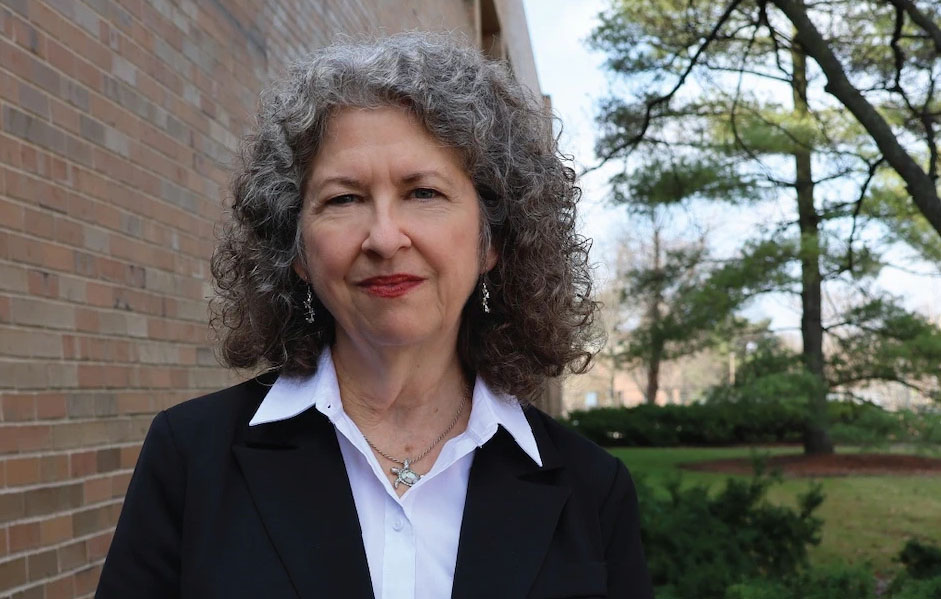
Michigan State University has received a $25 million grant that will address the state’s critical shortage of direct care workers, or DCWs, by establishing a Direct Care Career Center that aims to increase pathways into the field and transform the public view to one that recognizes the workforce as a respected profession.
DCWs provide long-term support to individuals with disabilities and older adults. They assist with hands-on care and tasks needed to maintain as much independence as possible. Paid direct care assistance beyond what families can provide is often a necessity, but there is a dire shortage of people trained to do this kind of work. Employers are facing serious challenges in hiring and retaining staff. About 190,000 DCWs are currently serving the state’s residents; at least 36,000 more are needed.
IMPART Alliance, housed in MSU’s College of Osteopathic Medicine, is committed to helping Michigan expand and support the direct care workforce through training, credentialing, career paths, and advocacy at the state level. Serving as the convener, and working with a strong statewide network of partners, multiple initiatives will lead to greater numbers of qualified direct care workers, and improved recruitment and retention rates.
IMPART Alliance is tackling a problem faced by all of us, including our parents, our partners and, ultimately, ourselves,” said executive director and leading faculty researcher Clare Luz. “The U.S. and Michigan’s populations are rapidly aging, which is creating a greater demand for high-quality, lower cost supports and services at home, where most people prefer to live for as long as possible in their later years.”
The shortage is largely due to low wages, a lack of benefits and the absence of guaranteed hours, training and respect, all of which lead to economic insecurity for DCWs and costly turnover rates, Luz added. Employers are now shuttering their doors, cutting back services and turning people away, which is putting lives at risk. The turnover rate among DCWs exceeds 80% annually, with an average annual cost of over $170,000 per agency.
Clare Luz is an associate professor in the Department of Family and Community Medicine in the MSU College of Osteopathic Medicine. Luz is also founding director of AgeAlive, which connects MSU and the community to support and enhance research, education, and services related to aging. Courtesy photo.
“We need more DCWs, but we also want competent DCWs who know how to provide support safely and with respect and who like their job and plan to stay in it,” Luz said. “Evidence clearly shows that a stable, trained, professional direct care workforce can result in higher worker satisfaction, lower turnover rates and better health outcomes including fewer falls and emergency department visits.”
Michigan State University has received a $25 million grant that will address the state’s critical shortage of direct care workers, or DCWs, by establishing a Direct Care Career Center that aims to increase pathways into the field and transform the public view to one that recognizes the workforce as a respected profession.
DCWs provide long-term support to individuals with disabilities and older adults. They assist with hands-on care and tasks needed to maintain as much independence as possible. Paid direct care assistance beyond what families can provide is often a necessity, but there is a dire shortage of people trained to do this kind of work. Employers are facing serious challenges in hiring and retaining staff. About 190,000 DCWs are currently serving the state’s residents; at least 36,000 more are needed.
IMPART Alliance, housed in MSU’s College of Osteopathic Medicine, is committed to helping Michigan expand and support the direct care workforce through training, credentialing, career paths, and advocacy at the state level. Serving as the convener, and working with a strong statewide network of partners, multiple initiatives will lead to greater numbers of qualified direct care workers, and improved recruitment and retention rates.
IMPART Alliance is tackling a problem faced by all of us, including our parents, our partners and, ultimately, ourselves,” said executive director and leading faculty researcher Clare Luz. “The U.S. and Michigan’s populations are rapidly aging, which is creating a greater demand for high-quality, lower cost supports and services at home, where most people prefer to live for as long as possible in their later years.”
The shortage is largely due to low wages, a lack of benefits and the absence of guaranteed hours, training and respect, all of which lead to economic insecurity for DCWs and costly turnover rates, Luz added. Employers are now shuttering their doors, cutting back services and turning people away, which is putting lives at risk. The turnover rate among DCWs exceeds 80% annually, with an average annual cost of over $170,000 per agency.
Clare Luz is an associate professor in the Department of Family and Community Medicine in the MSU College of Osteopathic Medicine. Luz is also founding director of AgeAlive, which connects MSU and the community to support and enhance research, education, and services related to aging. Courtesy photo.
“We need more DCWs, but we also want competent DCWs who know how to provide support safely and with respect and who like their job and plan to stay in it,” Luz said. “Evidence clearly shows that a stable, trained, professional direct care workforce can result in higher worker satisfaction, lower turnover rates and better health outcomes including fewer falls and emergency department visits.”
